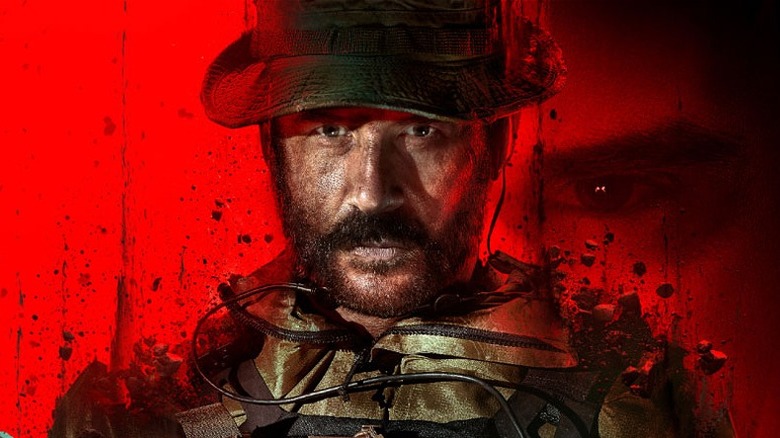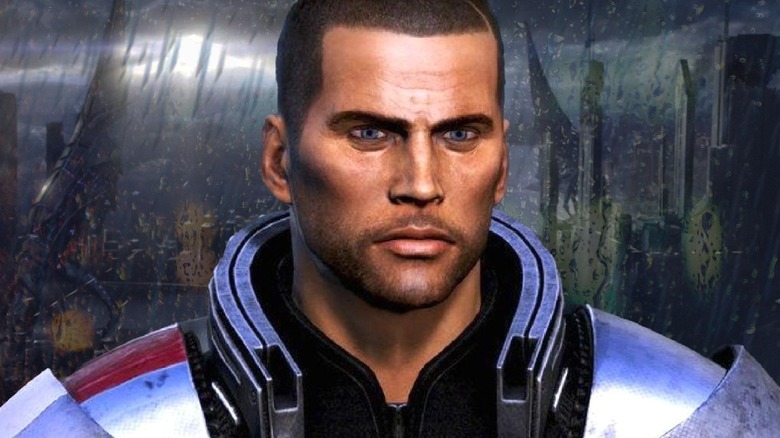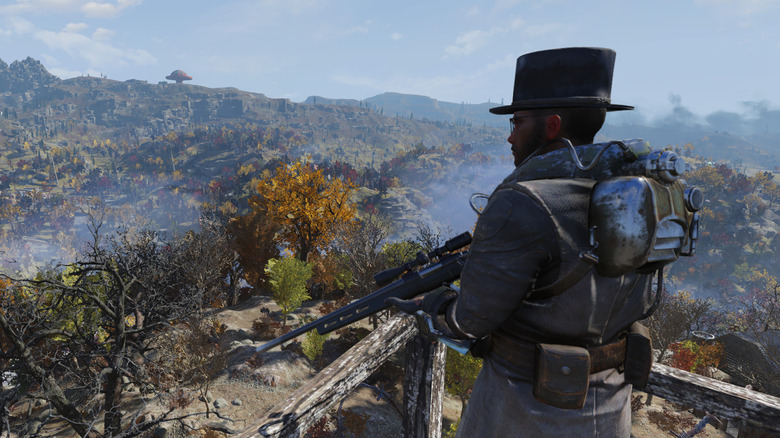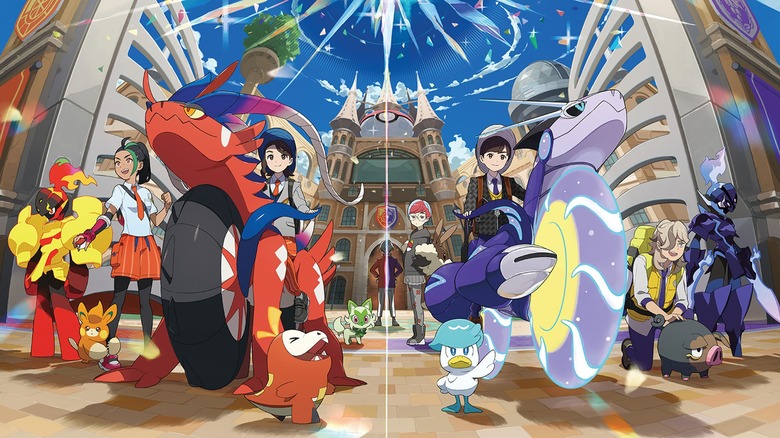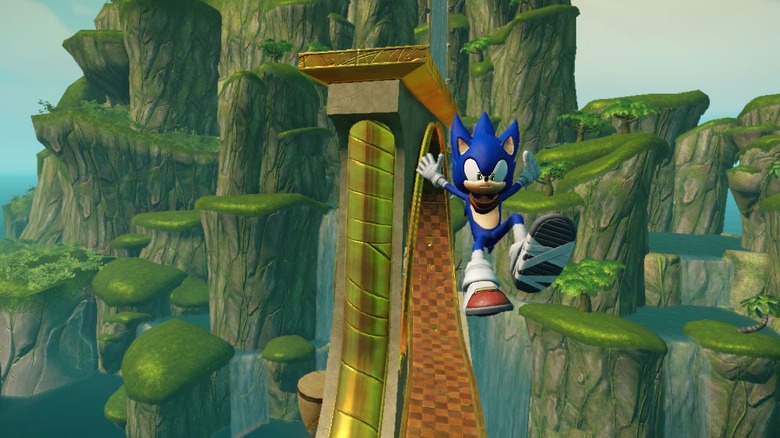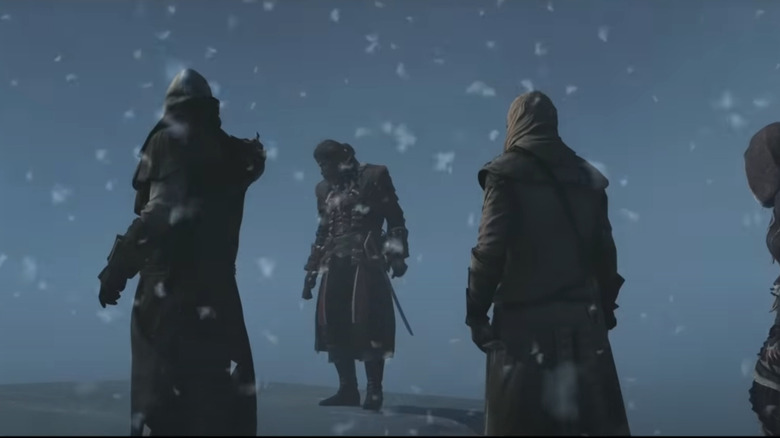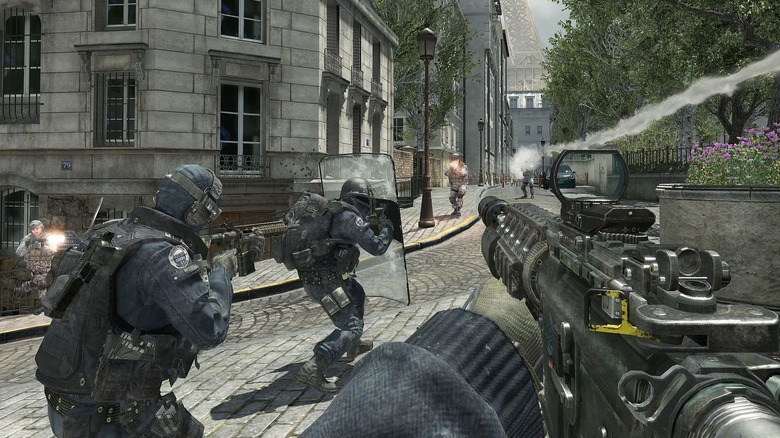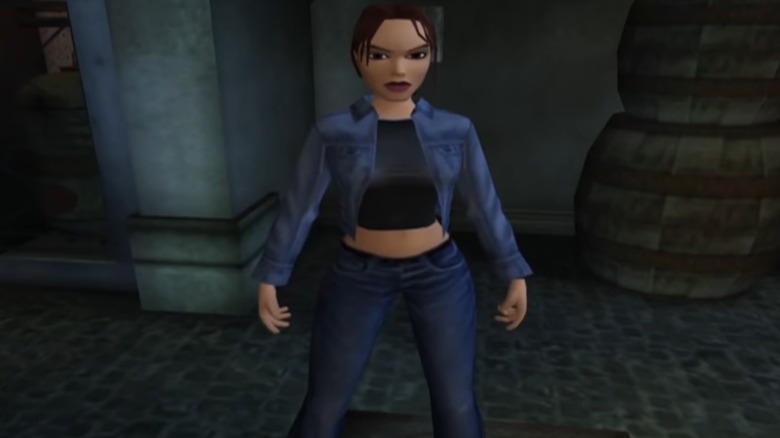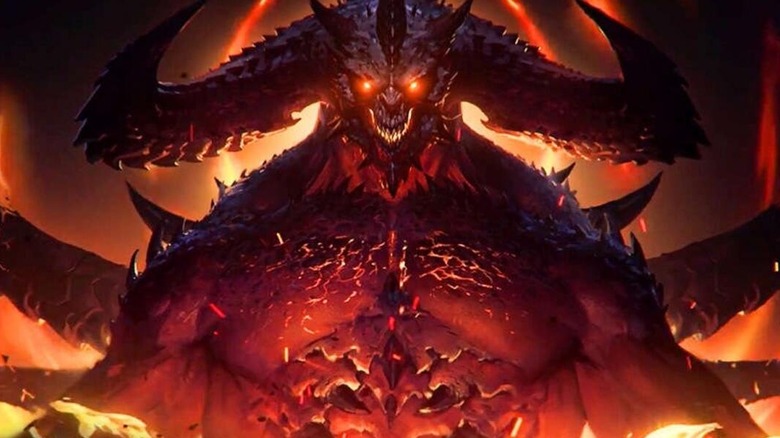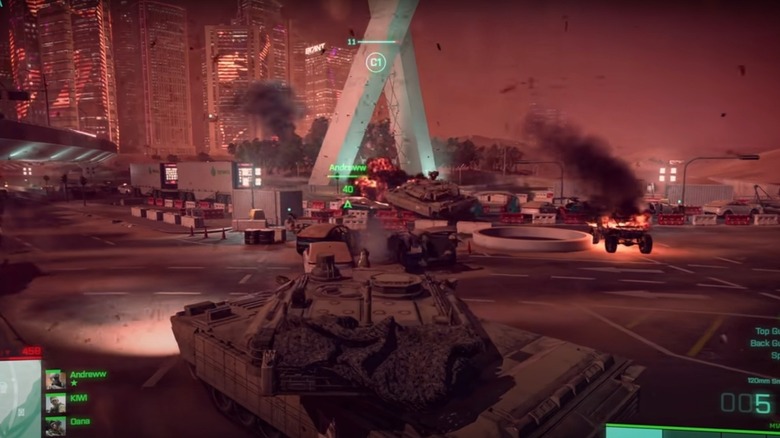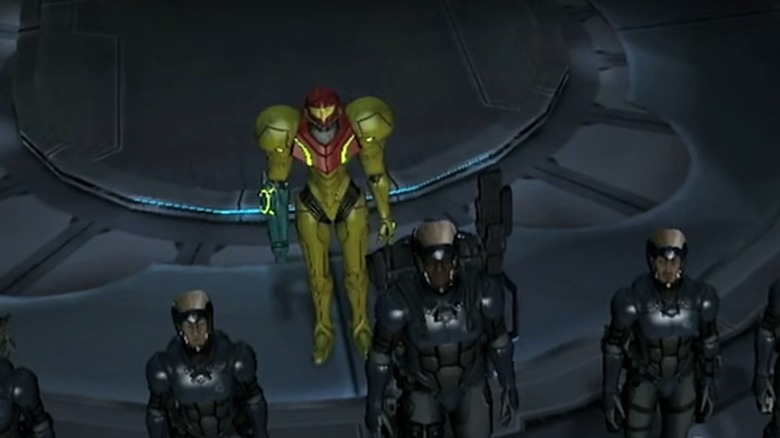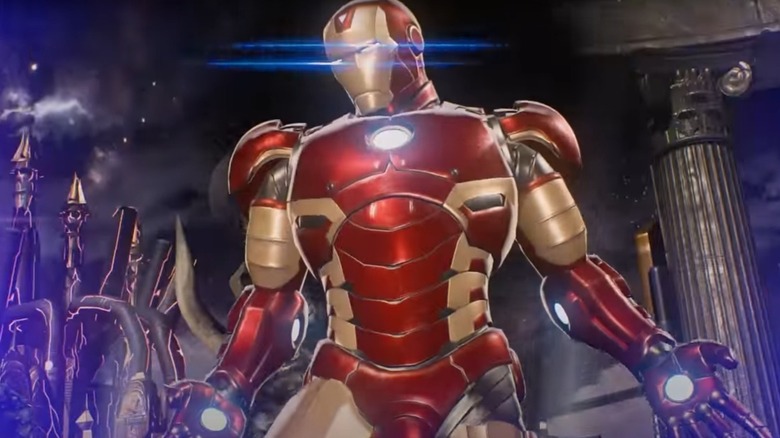Terrible Games That Stained Great Franchises
As any gamer knows, bad games are all too common. Whether it's due to a bad story, a campaign filled with bugs, or a "final product" that simply seems unfinished, there's a million different ways for a game to fail. That doesn't stop people from being surprised when games in the most beloved and well-established of franchises come up short of expectations, though. Fans come to trust their favorite franchises and the developers that make them; when that trust isn't rewarded, it often spawns not just disappointment, but outright anger among a series' most ardent supporters.
There is a level of comfort most fans have with there favorite series. When a quality franchise fails for one reason or another, it can result in a very different type of disappointment than one might normally experience with a bad game. Here is a look at some entries in popular series that were so bad, they stained their entire franchise.
DISHONORABLE MENTION: Mass Effect 3
To be fair: "Mass Effect 3" isn't a bad game. In fact, there's a strong argument to be made that roughly 99% of it is a complete masterpiece. However, as anyone who has ever played the "Mass Effect" trilogy will tell you, there is one thing about the game that left a sour taste in almost every player's mouth: the ending.
The game's final act effectively requires the player to make one of four choices — two of which have even really properly been set up as possibilities during the game — and all they really amount to is a differently-colored explosion. If you happen to be playing the "Extended Cut" DLC, you also get a different ending monologue, depending on your choice. The "Extended Cut" was only even released as an attempt to calm player criticisms about the original ending, as it felt even more vague and meaningless.
For a series of games that lean so heavily on changing based on the choices the player made, and on those choices having consequences, the ending feels like a punch in the gut. Everything Shepard has done, every person they've rescued or killed, every civilization they've saved or destroyed, every political or personal relationship they've forged — it all feels pointless. It's been over a decade and "Mass Effect" fans still aren't entirely over it. Some hoped that the remastered "Legendary Edition" might make some changes to the ending, but that did not materialize. Others are hoping that the fifth "Mass Effect" game might finally provide the closure that "Mass Effect 3" didn't. Until then, fans of the franchise will likely continue to stew in their disappointment over how the beloved trilogy ended.
Fallout 76
"Fallout 76" was Bethesda Softworks' attempt at doing something different with one of its golden goose franchises. The developers attempted to add multiplayer elements to the game, all while maintaining a single-player story-driven experience. This experiment did not really work. While many critics found elements of the game enjoyable, they also criticized it for seeming unfocused. Neither the PvP, multiplayer, or single-player experiences felt complete on their own. The game features a vast open world, which some players have enjoyed, citing it as the best thing about the game at launch. However, that world lacked a cohesive story to keep it all flowing together logically. There was also a distinct lack of NPCs in the early days. Solitary players often found themselves frustrated, discovering that much of the content they wanted to play was locked behind PvP. Others felt as though pushing through areas designed for multiplayer co-op simply wasn't worth the cost in time and resources.
Ultimately, "Fallout 76" is a game with an identity crisis. It wants to be an open world exploration game, a single-player action RPG, a multiplayer co-op experience, and a PvP game, all at the same time. There are lessons for developers to learn here, as the game ends up being big and varied in scope, but is ultimately only okay at 10 different things, rather than great. "Fallout 76" has seen some major overhauls in the last few years, but whether these lessons have been passed onto other devs remains to be seen.
Pokémon Scarlet and Violet
It's no secret that the "Pokémon" games have been on a downward trajectory for a while now (at least, according to many longtime fans), but "Pokémon Scarlet" and "Violet" have widely been seen a new low for the beloved franchise. While "Sword" and "Shield" were considered to be a little disappointing in their scope and difficulty level, "Scarlet" and "Violet" were the first mainline "Pokémon" games to get some truly savage reviews. The reasons players and critics have for disliking the games are myriad, but by far the biggest one is probably the bugs. The two "Pokémon" games were released as glitchy messes. Players encountered constant crashes, weird graphical pop-ins, sudden increases in movement speed, and an inability to pick up items.
Eurogamer called "Scarlet" and "Violet" "comprehensive technical failures," even outside of the bugs. The outlet cited things like a lack of shadows and reduced animation rates for distant objects as some of the biggest and most frequent issues. These sorts of problems make the games look awkward, stilted, and sometimes downright ugly, even for a series that was never big on pushing technical boundaries or looking all that visually stunning. It's hard to imagine how such a well-respected series with such a great reputation got here. Gamers can only hope that whatever Game Freak decides to do next with "Pokémon, it will be a return to form.
Sonic Boom: Rise of Lyric
Sonic has been around for a very, very long time, particularly when compared to other gaming franchises. As a result, by sheer force of numbers, it has seen its fair share of bad games. "Sonic Boom: Rise of Lyric," however, is considered by many to be the worst "Sonic" game ever made. Complaints have centered around the game's inconsistent and jumpy framerate, as well as a plethora of other bugs, but there is one other thing that makes "Rise of Lyric" stand out in its badness.
"Rise of Lyric" has outright horrible level design, which is a death sentence for a "Sonic" game. Speed and flow are crucial elements in making "Sonic" titles work. After all, "Gotta go fast" is one of the most famous catchphrases in gaming for a reason, and "Rise of Lyric" didn't stand by this ethos. From choppy combat that lacked the satisfying fluidity of other "Sonic" games to auto-scrolling levels that just feel unsatisfying or outright annoying to play, the game severely lacks in the things that "Sonic" gamers look for.
Assassin's Creed Rogue
"Assassin's Creed Rogue" definitely isn't the worst game on this list, but it holds a place of infamy among "Assassin's Creed" fans nonetheless. It offered nothing new to the franchise and left players wanting so much more. Many fans complained that it felt too similar to "Black Flag," which was still a relatively recent release at the time. Others complained that it just didn't have enough story to justify its existence as a standalone adventure, which may help explain why it's largely been forgotten by all but the most hardcore completists.
The real reason fans of the franchise remember "Assassin's Creed Rogue" is that it was also the herald of a downward trend for the franchise. Subsequent entries, particularly "Assassin's Creed Unity" and "Assassin's Creed Syndicate," were also the recipients of mixed reviews from fans and critics alike. It took a full three years for the franchise to recover, with "Assassin's Creed Origins" finally seeing a positive reception similar to what the best games in the series got prior to 2014.
Call of Duty: Modern Warfare 3
Despite the warm reception for the previous remakes, the 2023 version of "Modern Warfare 3" has already become the black sheep of the "Call of Duty" franchise. With a middling Metacritic score and abysmal user ratings, this is a new low point for a franchise that has already seen its fair share of misses over the years. The most common criticism is that the game simply doesn't have enough content to be a standalone game, which makes sense after Bloomberg reported that the project started as DLC for "Modern Warfare 2." Steam users have even taken to spamming its store page with reviews say calling it an over-priced expansion pack. CNN Underscored's review remarked, "everything from single-player to multiplayer feels half-baked and rushed."
Given all this, it's pretty easy to wonder why the "Call of Duty" development team didn't stick to the reported plan of releasing a DLC for "Modern Warfare 2" and taking a year off from releasing a new game in the series. According to Bloomberg, the primary reason for this change was to close a hole in Activision's release schedule. The company denies that this decision led to a rushed development cycle, but this contradicts with what some sources close to the game told Bloomberg. These anonymous devs claimed to have worked nights and weekends in order to get the game out on time. The full story behind the problems with "Modern Warfare 3" will surely come to the forefront in time, but for now, all "Call of Duty" players have to sit with the disappointment.
Tomb Raider: Angel of Darkness
"Tomb Raider: Angel of Darkness," the 2003 PS2-era entry in the iconic action series, might be the worst of the bunch. The story of "Angel of Darkness" actually doesn't receive too much criticism these days, but rather it's the gameplay that falls short. Critics mostly panned the game for its clunky controls and camera. The controls have been seen as cumbersome, unwieldy, and unintuitive, while the camera is occasionally an outright impediment to the player. Players and critics also cited some truly baffling and frustrating game mechanics, which often left the player pointlessly grinding to hit hidden statistical breakpoints before they could advance in the story.
The game, like many others on this list, was also criticized upon release for having a myriad of bugs and glitches, some of which were serious enough to cause the game to completely crash. While "Angel of Darkness" has mostly been forgotten about now, it had an immense impact on the franchise at the time, for both ill and good. It helped lead to a change of both developer and direction for "Tomb Raider," which ultimately brought the series into a new golden age.
Diablo Immortal
"Do you guys not have phones?" This remains one of the most infamous and memed lines in the history of gaming. In the eyes of many dedicated fans, "Diablo Immortal" was a deeply unnecessary and disdainful entry in the franchise. The mobile-exclusive title was announced in 2018, at a time when it felt like anyone who had any significant IP in the gaming industry was trying to break into the mobile gaming space — which is how we get the aforementioned infamous clip of "Diablo" designer Wyatt Cheng responded to disgruntled gamers. For that same reason, the product was also widely seen as an attempted cash grab.
"Diablo Immortal" received mixed reviews from critics and was outright hated by a passionate sector of the "Diablo" fanbase when it finally released in 2022. The story, the gameplay, and pay-to-win mechanics inherent to a freemium game all received criticism. It's worth noting that some reviewers did really like the game, however, and it retains a solid player base over a year after release. Still, to a large number of hardcore PC "Diablo" players, "Diablo Immortal" takes up space and support that a more extensive and proper "Diablo" game could. With "Diablo 4" having finally having its time in the sun, perhaps that frustration has since been lessened.
Battlefield 2042
Among gamers, "Battlefield" is generally known as the slightly less popular (but often slightly better) cousin to "Call of Duty." Sadly, "Battlefield 2042" is a definite exception to this rule. It was the franchise's first attempt to return to the futuristic warfare seen in 2006's "Battlefield 2142" in 2006, situating the action in a slightly closer future time. The result was a game that didn't live up to expectations, to say the least. Reviewers did see promise in the game, but most acknowledged that this promise went unfulfilled. The general sentiment was that the game would need lots of content updates and DLCs to reach the heights expected of it.
In addition to numerous bugs, players complained about the removal of popular features that existed in previous games. The most glaring of these is the omission of a single-player campaign. Some players were so disappointed with the game that they even started a petition, which received over 160,000 signatures, asking for their money back. Some petitioners even threatened legal action if they weren't refunded. The game's overall player count quickly dwindled, dropping by 80% in its first month.
Metroid: Other M
While "Metroid: Other M" wasn't poorly received by most critics at the time of its release, it remains reviled by many "Metroid" fans to this day. Much like "Tomb Raider: Angel of Darkness" a lot of the criticism of "Other M" falls on its controls, which are described as being clunky and nonsensical, making the game needlessly difficult.
Other players strongly disliked the story, feeling like it unnecessarily forced major plot twists and retcons. Plot holes and inconsistencies in the storytelling also ruined players' investment and immersion in the game. On top of it all, the portrayal of Samus Aran has been highly controversial, with a great deal of frustration aimed at her unwillingness to stand up against returning enemies like Ridley. Above all else though, perhaps, the game is hated because it simply didn't meet the extraordinarily high standard set by previous "Metroid" games. "Other M" does have some fans out there, but to a lot of hardcore "Metroid" players, it just simply isn't good enough, at least not when compared to their favorite entries in the series.
Marvel vs. Capcom Infinite
"Marvel vs. Capcom Infinite" is the most recent entry in a series that goes all the way back to the late 90s. Despite that longevity, it's pretty easy to understand why this series has been stalled for several years, especially when one looks at the reception "Infinite" got.
While the core gameplay mechanics are still relatively tight, the changes made to the series' winning formula were seen as unforgivable. Critics pointed to the game's weak story and equally poor character designs as major issues, with IGN describing the characters as looking "like they were deliberately designed to spawn a million derpy memes." A bad story is one thing, but awkward character design is maybe the second worst flaw you could have in a fighting game. Bad-looking characters take away from the power fantasy innate to fighting games. It makes them feel silly and quirky rather than badass and cool. Without those feelings, it's hard for a fighting game to stick around for too long.
Hardcore Gamer said that the game as a whole "[does] little to help justify the full-price tag." This sentiment wasn't helped by the fact that "Infinite" did away with the 3v3 combat from previous "Marvel vs. Capcom" installments, which some fans thought of as their favorite part of the series. All in all, "Marvel vs. Capcom Infinite" was a total misfire.

